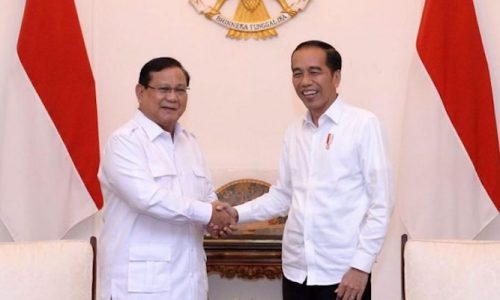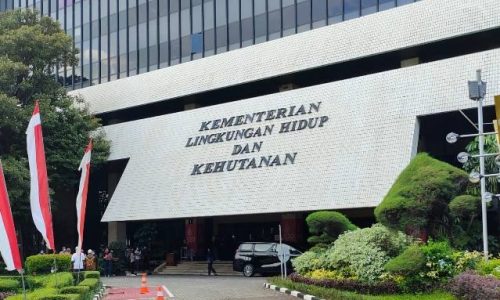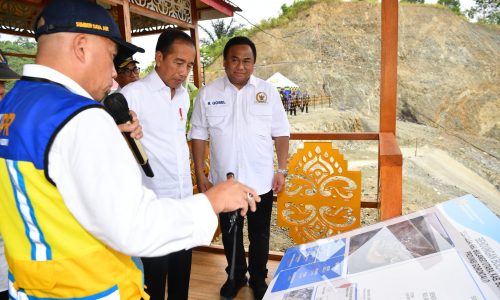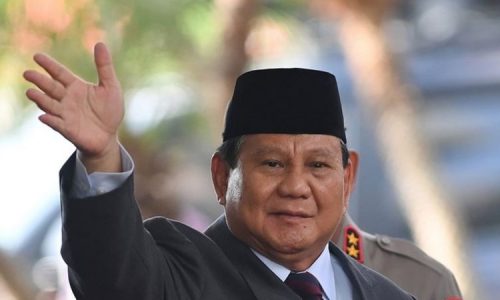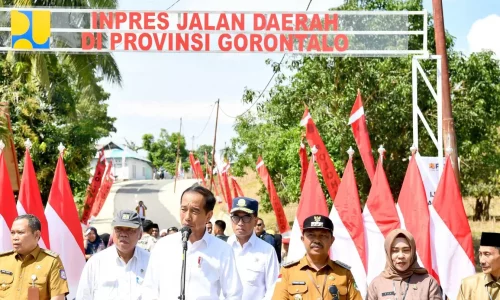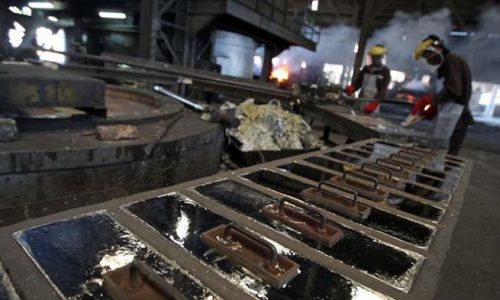NGOs in Indonesia have served as a significant factor in advancing public or social welfare goals. There are countless NGOs in Indonesia, both international and national/local.
NGOs works voluntarily and independently without any interference from the government at all. They receive funding from, among others, donations from cooperating companies, voluntary donations from the community and raising funds. The fund raising is necessary to carry out social action to the community directly.
The following are some of Indonesia’s most influential NGOs:
PEKA Indonesia
PEKA Indonesia was founded in 2000. Its aim is to research and educate nature conservation to promote the concept of Ecosystem Health.
They have 3 main programs:
- Environmental education via campaign and cooperation with local educational institution.
- Societal development by assisting people living in rural areas to help in conserving the natural balance.
- Research in biodiversity and insects.
PEKA Indonesia are partners with other NGOs and private companies. Some of their partners include:
- Ford Motor Co.
- Coca-Cola Indonesia Foundation
- PT Grasindo
Greenpeace Indonesia
Founded in 1971 by Irving and Dorothy Stowe in Canada, Greenpeace is a world-famous NGO that advocates environmental activism. It directs members to organize for confrontative action without violence independently.
Greenpeace has since grown to become a worldwide organization. It has established 27 independent national or regional organizations in over 55 countries. It also operates in Indonesia.
The stated main goal of the organization is “to preserve the deteriorating Earth so that it may keep sustaining the life of all creatures.”
Greenpeace claims to not accept funds from governments, intergovernmental organizations or corporations to avoid becoming influenced. However, Greenpeace also confirms it accepts donations from individuals and foundations.
Some government-backed organizations, such as the Netherlands’ National Postcode Lottery, also have funded Greenpeace which calls into question the claim of only accepting donations from unbiased sources.
Yayasan Cinta Anak Bangsa (YCAB)
YCAB is an NGO focusing on empowering marginalized children. Founded in Jakarta in 1999 by Veronica Colondam, YCAB has since skyrocketed in status. It even managed to land the 74th rank in The Global Journal’s publication The Top 100 NGOs in 2013.
YCAB’s three main programs are:
- Healthy Lifestyle Promotion (HeLP)
- Spreading awareness, campaigning for anti-drug abuse in children and HIV/AIDS. Promoting teenage activities dedicated to building leadership skills and positive productivity.
- House of Learning and Development (HoLD)
- Program dedicated to train marginalized children in specific training houses.
- Hands-on Operation for Entrepreneurship
- Program to assist alumni of the HoLD program to prepare them for proper employment.
YCAB is sponsored by a multitude of governmental and corporate organizations such as:
- CIMB Niaga
- Pertamina
- Chevron
- Adidas
- National Narcotics Agency (BNN)
Ikatan Sindroma Down Indonesia (ISDI)
ISDI is an NGO dedicated to fighting the stigma against people who suffers from Down’s syndrome in Indonesia. It was founded in 1999 by Aryanti Yacub.
The main members of ISDI are the elderly, medical experts, experts in orthopedagogy, teachers and regular sympathizers.
Programs that the organization promotes include events encouraging sports, arts and other social activities for those with Down’s syndrome. The ISDI also provides trainings in simple administration for office work or and other related work in the office to prepare them for future jobs in life skills.
ISDI receives funding from individuals and private companies. Some notable sponsors of ISDI are:
- Kompas
- AIA Insurance
- Citilink
- CENTRO
- Fuji Film
Lembaga Perlindungan Anak (LPAI)
LPAI is an NGO dedicated to the protection of children in Indonesia. The NGO was founded in 1997 and has operated throughout the country. Its goal is to advance, monitor, protect and prevent violation of rights against children.
LPAI focuses on cases relating to violence, exploitation, trafficking, abandonment, sexual harassment, and many more in regards to child protection.
Roles and Function:
- A monitoring body and place to file complaints on children related cases
- Provide law assistance service in courts to represent children’s interests
- Spreading education on the rights of children
World Wide Fund for Nature Indonesia (WWF)
WWF Indonesia is a subsidiary to the Swiss-based WWF, an international non-governmental organization founded in 1961 that focuses on wilderness preservation and mitigating negative impacts humans have on the environment.
The WWF in Indonesia focuses on programs relating to the conservation of:
- Flora and fauna
- Sea ecosystem
- Sustainable food security
- Forest preservation
- Climate and energy
- Freshwater preservation
Some of its notable sponsors are:
- Bluebird
- HSBC
- Agoda
- Bank BNI
Yayasan Konservasi Laut (YKL)
YKL focuses on conserving the sea ecosystem and mainly the shores and smaller islands. The NGO was founded in Makassar, South Sulawesi, in 1996. YKL aims to also empower the inhabitants of Indonesia’s shorelines and smaller islands and to establish alternative energy technology which are environmentally friendly.
Its main aims are to:
- Research and develop scientific concepts regarding resource development in key areas
- Push for increasing the human resource quality in the targeted areas
- Give professional services and assistance to bodies of self-subsisting communities
- Push for policies beneficial to the development of resources in the shorelines and smaller islands
Some of its sponsors are:
- Plan International
- Marinelife Alliance
- Lemsa
- Pact
- John Hopkins University
- Gojek
- Australian Aid
LESTARI Indonesia
LESTARI Indonesia was founded in 2014 by Czech conservationists and scientists, who were eager to support conservationism and environmentalism in Indonesia. LESTARI is an NGO that mainly deals with research and conservation of critically endangered species and ecosystems.
LESTARI’s 3 main area of focus are:
- Conserving island ecosystems
- Protecting endangered species
- Promoting sustainable livelihoods
Currently the NGO is researching on sea turtle trade and are putting in its effort to save the Nias hill myna bird from extinction.
Some sponsors of LESTARI include:
- ZOO Ostrava
- Ecosystem Impact
- ZOO Liberec The Kukang Rescue Program
Yayasan Lembaga Bantuan Hukum Indonesia/Foundation of the Indonesian Legal Aid Institute (YLBHI)
YLBHI was founded in 1970 by Adnan Buyung Nasution, a noted Indonesian lawyer, advocate and activist. The foundation was supported by then Jakarta Governor Ali Sadikin. YLBHI now has 17 legal aid branch offices in 17 provinces.
The purpose of the NGO is to assist and support the work of legal aid institutions in 17 provinces. Issues of legal aid institutions are strictly tied to structural poverty which led many in Indonesia to be unable to access adequate legal assistance.
The YLBHI provides legal aid to the less fortunate in society and it struggles to enjoin the rights of the lower class and victims of human rights violations.
The NGO played a key factor during the former president Soeharto era in opposing his authoritarianism.
Wahana Lingkungan Hidup Indonesia/Indonesian Forum for the Environment (WALHI)
Walhi is the oldest environmental NGO in Indonesia with a long history. The organization was founded primarily by former minister of population and environment Emil Salim in 1980.
It is also the biggest environmentalist NGO with 487 subsidiary organizations and 203 individual members spread across 28 Indonesian provinces.
WALHI’s mission is to:
- Develop the Indonesian people’s steadfastness and strength
- Restore the state’s mandate to uphold and protect the people’s sovereignty
- Deconstruct the oppressive globalist capitalistic economic order and redirect it towards a people-centered economic order
- Build an alternative world economic order
- Push for the just and sustainable development of resources for life


